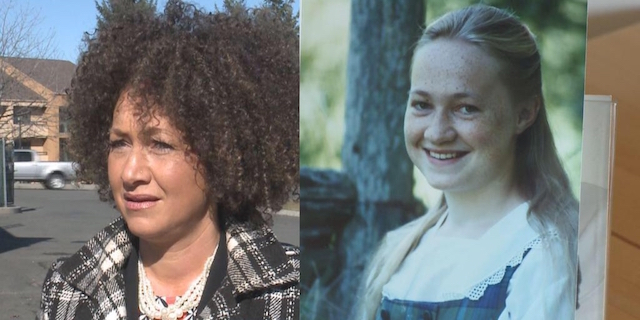One of the many mysteries in my family was the identity of my maternal grandfather’s father.
Apparently, my great-grandmother Margaret was something of a storyteller (if not an outright liar) and told my grandfather three different stories about who his father supposedly was. The most far-fetched was the one that claimed this mystery-father had been a Native American she met while living in Arizona.
There were obvious holes in this story.
Margaret was originally from Austria and, according to my grandfather’s older sister, she was still living there when my grandfather was born. The man in question only appeared to come into Margaret’s life when my grandfather was four years old. And, lastly, there was the not-so-insignificant fact that my grandfather looked no more Native American than the man in the moon. However, this was the story he chose to believe.
Even toward the end of his life, and even after my great-aunt revealed the name of the man she believed to be his father (who happened to be a married Austrian doctor), my grandfather stubbornly refused to believe that he didn’t have a drop of Native American blood.
Despite the fact that no one else in the family believed this, they went along with it because, as my grandmother put it, “he wasn’t hurting anyone” in his beliefs.
Fast forward a few decades, and the media has been taken aback by the story of Rachel Dolezel, the head of the Spokane NAACP who claimed to be African-American, but who was actually revealed by her estranged parents to be white.
While the social media universe was abuzz with comments ranging from outraged to humorous, there was one by the actress Mia Farrow stating, “We accept that a person can identify as transgender. Could ‘trans-ethnic’ be a real thing?”
On a similar note, someone tweeted: “I’m perfectly happy accepting Caitlyn Jenner as female and Rachel Dolezal as black.”
As a minority woman and someone who supports transgender rights, I was more than a bit puzzled by this.
Frankly, I don’t see a comparison between the two, nor do many others, including the transgender writer/advocate Meredith Talusan, who writes:
“The fundamental difference between Dolezal’s actions and trans people’s is that her decision to identify as black was an active choice, whereas transgender people’s decision to transition is almost always involuntary.”
Indeed, while Dolezal may have chosen to identify as a black woman as an adult, the fact is she cannot compare her experience to someone who was born black and experienced the racism and prejudices that come with being black in America.
One of her adopted brothers, who happens to be biracial, compared her actions to modern day “blackface,” a reference to the bad old days when white entertainers painted their faces black and played racist caricatures.
While much has been made about Dolezel’s decision to darken her naturally fair complexion with real or spray tan and adopt hairstyles typically associated with African-American women, I don’t have a problem with that.
She’s hardly the first non-black person to do so.
I personally have known many people of all races and ethnicities who had a deep love and appreciation of cultures outside their own. I even briefly dated a man my freshman year of college who was, in his own words, “as WASPY as they come” and a total Japanophile, to the point that he sometimes wore traditional Japanese dress and even answered his phone in a Japanese greeting.
However, there was a difference: he was not pretending to be Japanese.
Likewise, even my grandfather, who I discussed in the beginning of the piece, was not pretending to be Native American. Despite the improbability, he believed that there could be a chance it was true.
Dolezal, on the other hand, appears to have been outright pretending to be black with a complex fictional backstory to boot.
Indeed, if her family is to believed, Dolezal went so far as to cut off contact with her parents and even asked her aforementioned brother not to blow her cover. There are also claims that she invented an imaginary stepfather who supposedly physically abused her. (Dolezal’s biological parents are still married to one another.)
Frankly, that is the saddest and most outrageous thing about this strange case: she lied, and for no apparent reason.
Being honest about who she really was would not have prevented Dolezel from being a lover of African-American culture or an advocate for civil rights. In fact, it might have been informative and interesting had she addressed, either in her role as a professor or as a civil rights leader, why she as a white woman identified so strongly with the culture, while at the same acknowledging the privileges that come with being part of the majority culture.
None of us have to be a member of a particular culture or racial group to like or appreciate it.
Furthermore, there is nothing wrong with being from any cultural background. In Dolezal’s case, her background of German and Czech heritage with traces of Native American is interesting and should be celebrated.
If we are ever to live in a society where all people are treated equally and all backgrounds are celebrated and honored for their uniqueness, then the first step is being true to who we are.
Relephant Read:
Confessions of an Undercover Racist: White privilege, cultural appropriation, & the search for meaning.
Author: Kimberly Lo
Editor: Emily Bartran
Photo: Reddit







Read 17 comments and reply